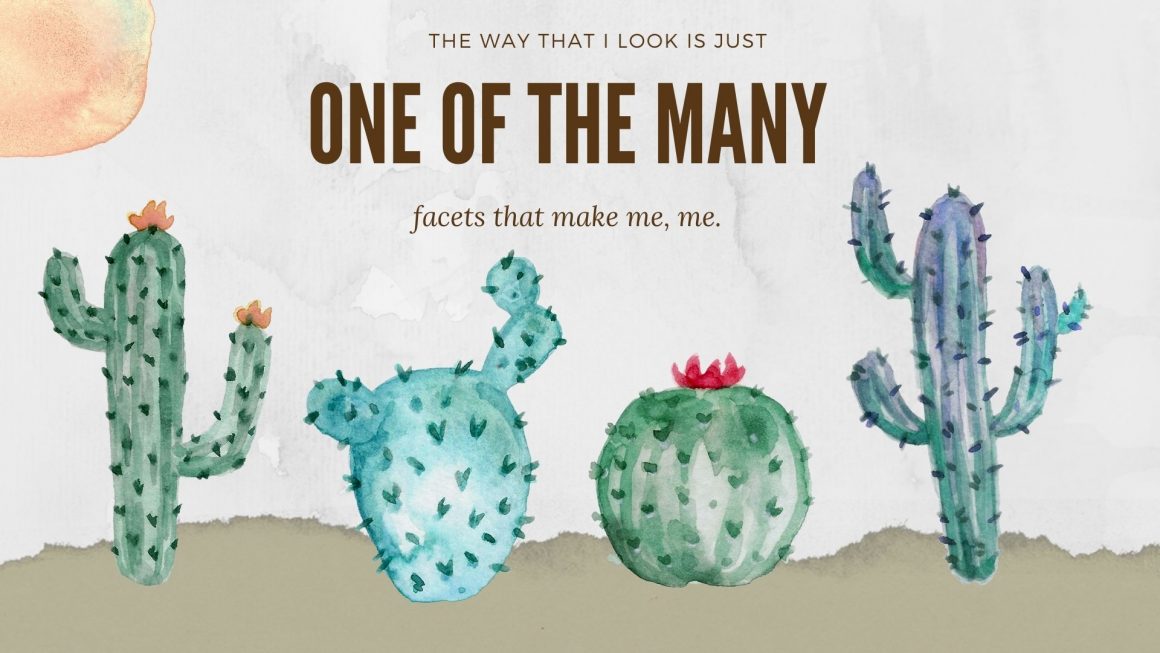
Gained weight? Me too!
By Frankie Berardino, March 28 2022—
This article discusses themes around weight, fat-shaming and diet culture. If you are someone who thinks they may be struggling with these topics, please read this article at your own discretion and consider accessing services.
As someone who has travelled up and down on the weight scale, I’ve learned a lot about accepting your body the way it is naturally. Being a former bigger kid, I’d frequently get unnecessary comments about my body. Hearing the cruel insults roll of the tongues of school-aged boys who’d say things like, “I’d date you if you lost weight,” or, “You’d look way more beautiful if you lost like 15lbs,” or the worst one — “Even though you’re fat, I still think you’re a good person.”
The world is cruel toward people who don’t fit into societal expectations or norms. On top of that, society is especially quick to deem people in larger bodies as being lazy and needing to change themselves for their health or the validation of others. When in actuality, none of these are necessarily true and weight doesn’t always correlate to health.
Too often, people are made to feel like failures if they’ve gained weight or are living in bigger bodies. Particularly over the pandemic, the wellness industry and social media have been thriving on guilting people into ridding themselves of their quarantine weight or needing a glow-up. This isn’t accurate.
People gain weight for a variety of reasons — none of these mean you are a failure and many don’t mean you need to lose weight. For anyone else who has gained weight in this pandemic or at any time in life, it’s okay and not something to feel bad about. As someone who has gained weight, accepted it and revolted against diet culture, learning how to accept myself has been a cumbersome yet rewarding journey.
Practicing body neutrality has been one of my favourite strategies. Body neutrality is slightly different compared to body positivity. The latter tends to focus more on the notion that all bodies are beautiful. This concept isn’t wrong, but the movement has been criticized for focusing too much on appearance.
On the contrary, the body neutrality movement takes a much more neutral perspective toward physical bodies. Focusing on accepting your body as it is and acknowledging that your body is a vessel for your existence and takes the pressure away from feeling good about yourself every day. Similarly, body neutrality promotes letting go of attachment to appearances. An example of this could be being thankful for your body for helping you in moving you around this earth and helping you to be present with loved ones. In other words — our bodies do more than just look aesthetically pleasing.
What else are you? Too often, society tries to diminish us down to our outward appearances or a number on a scale, but we are so much more than our physical bodies. A great practice to help recognize this is to make a list of all the things you are — having nothing to do with your appearance or the force you exert on a piece of glass and metal. Personally, I like to remind myself that, outside of my body, I am a great friend, passionate about my major, love dancing and also learning to have compassion for myself.
Another super helpful way of accepting weight gain is purchasing clothes you feel good in. Clothes should be made to fit your body, not the other way around. For years I was too scared to buy new clothes and I’d constantly wear clothes that were too small and felt uncomfortably tight because I was scared to let go of society’s expectations of me.
Until recently, when I finally accepted that this is the way my body is and whether I like it or not, I can at least feel comfortable in the clothes I wear. Purchasing some new clothes allows you to find your style in a way that isn’t necessarily focused on a certain body type or shape. Similarly, comfort and enjoyment can be prioritized when shopping. On that note, I understand this isn’t applicable for everyone and this cannot happen overnight. Clothes — even thrifted ones — can be expensive and not everyone is in a position to shell out money for a new wardrobe.
Consider following a variety of bodies on social media. Getting sucked into the world of conventionally attractive influencers and yearning to look like them can be tempting. At the same time, there are so many special and compassionate influencers who are pushing back against conventional beauty norms and promoting inclusivity that spans beyond a single skin tone or body type. Some of my personal favourite Instagram influencers include Jameela Jamil’s I WEIGH community, Megan Jayne Crabbe, Alexa Larosa-Williams and the iconic Lizzo.
If you’re struggling with body image or self-esteem issues, it’s okay to ask for help. Weight gain and shame around weight gain is common. There are plenty of resources out there including the Wellness Centre who can be contacted via phone at (403) 210-9355 or consider booking a single-session mental health appointment through the Wellness Centre’s online booking system.
This article is a part of our Voices section.
